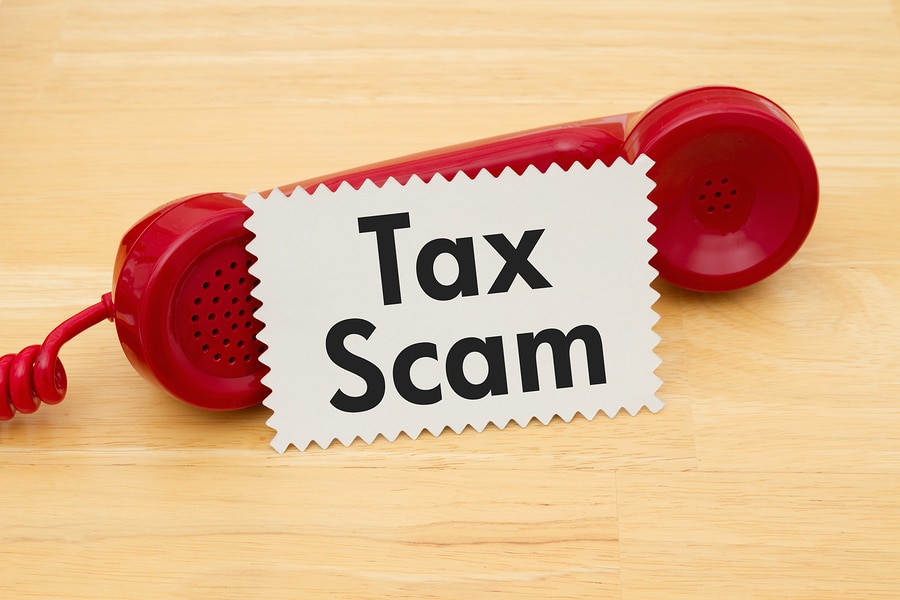
Our small business accountants help you identify common tax scams
Every so often, we hear news reports about people getting scammed. Whether it’s a dodgy tradie or a shady online offer that’s too good to be true, we’re left feeling frustrated for those unsuspecting victims who have fallen for a scam.
Around this time of the year, however, there’s a noticeable increase in public announcements informing everyday business owners of the latest tax scams making the rounds.
Scams happen all year-round, but they’re especially prevalent as we approach the end of financial year. Bruce Edmunds & Associates is sharing some common tax scams and techniques you must be wary of this tax season.
Identity theft
While it might make for a great crime film, identity theft is a serious and often devastating crime.
With identity theft, your personal information is used to commit fraudulent activities and crimes. And when thieves get hold of your tax file number (TFN), they will use it in fraudulent tax return transactions and to claim refunds.
If you suspect you have become a victim of identity theft and you suspect that your TFN has been stolen, the Australian Tax Office (ATO) has the Client Identity Support Centre that can assist you in restoring and protecting your identity.
Telephone scams
Scammers have made use of different communication lines to scam people, including calling potential victims over the phone.
A current and common scam goes like this:
- Someone calls you, claiming to be from the ATO
- They will try to intimidate or threaten you in order for you to hand over any personal or business data, including your TFN
- If you refuse to hand over this information, they will share various threats, including the police arresting you and your business license being revoked
Don’t fall for these threats – and if you’re concerned about someone calling you, ask for their name and number so that you can call them back.
If the number they provide to you is not on this official ATO Contact page, you might well have just avoided a nasty scammer.
Phishing emails
Avoid taking the bait of emails that come from sources that you are not familiar with, especially if they ask for personal and sensitive details. These could be phishing emails that are linked to dodgy websites.
If you click on a link in a phishing email, it might lead you to malicious but often well-created websites that try to gain your personal data.
If you suspect you’ve received a fraudulent email, the ATO asks that you forward it to ReportEmailFraud@ato.gov.au.
Remember that the ATO will never:
- Ask for bank details (BSB, Account number, etc.) in an email
- Threaten you with arrest
- Ask for payment in return of a refund
- Use email to tell you to download a file or install software
Spotting a dodgy email can be hard, but the ATO shares some signs you must look out for:
- Check who the email is coming from. If it comes from anyone other than a @ato.gov.au email, it may be fraudulent
- Look closely at the logos within the email. Are they pixelated or low quality?
- Does the email address you by name? If not, it may be a scam
- Is it filled with poor spelling or grammar?
- Does it ask you to pay a fee to release a payment?
All of the above are tell-tale signs that you’ve received a scam email. Find out more about spotting fake emails and reporting them here.
The ATO has an excellent, up-to-date resource that will keep you informed of all the latest phone and email scams. We recommend visiting this page as tax season approaches.
Fake charities
With so many organisations running these institutions, you have to make sure you are making charitable donations to legitimate ones. If you don’t, you might be taken advantaged or scammed by fake organisations.
There are two main types of scam charities:
1) Is it a charity you have never heard of? Or perhaps even more concerning;
2) Is it a charity you HAVE heard of, but the (legitimate) website has been duplicated and where to send payments has been changed?
For more information about how to claim a tax deduction for gifts or donations, check out this ATO guideline.
For more information on charity scams, visit this page from the Australian Competition and Consumer Commission (ACCC).
Avoid becoming a tax scam victim: get help from our small business accountants
Let Edmunds help you today!
In today’s world, you have to be vigilant about a lot of things. And this includes making sure you do not fall into the traps set by tax scammers.
Whether you are dealing with your personal or business tax, it is important that they are managed properly.
With the help of our team of certified small business accountants, we will make sure that your tax needs and requirements are met in accordance with the tax laws and obligations in Australia.
Bruce Edmunds & Associates are small business accountants and financial planners who have helped individuals and businesses navigate the tricky waters of tax since 1966. We would be delighted to work with your business across Melbourne including Bayside, Beaumaris and surrounds.
If you need help with anything related to compliance, tax advising, preparation, or any other accounting service, don’t hesitate to give us a ring on (03) 9589 5488 or fill out this form and we will be in touch!
Please note that this blog post has been created to provide general information, not advice. For accounting advice, please contact Bruce Edmunds & Associates today.






















